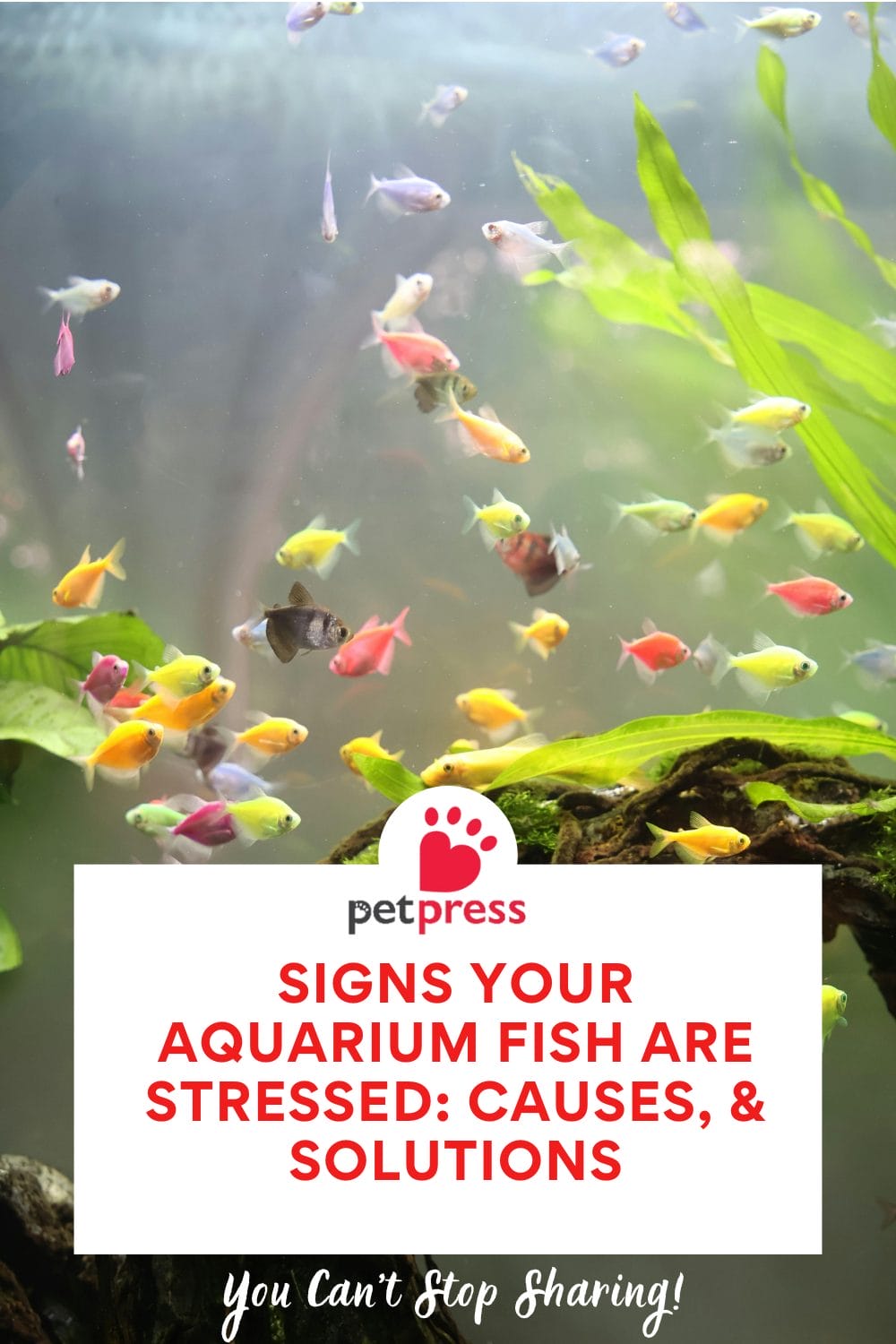
Fish are often seen as low-maintenance pets, but keeping aquarium fish healthy requires more than just food and water.
One crucial aspect that hobbyists frequently overlook is fish stress.
Stress isn’t just a human problem—it can have serious consequences for your aquatic pets, too. If left unchecked, stress can lead to illness, aggressive behavior, or even death.
So, how do you know if your fish are stressed?
In this comprehensive guide, we’ll explore the signs your aquarium fish are stressed, how to eliminate environmental stressors, mistakes to avoid, and frequently asked questions that can help you become a more responsible fish keeper.
What are the signs that your aquarium fish are stressed?
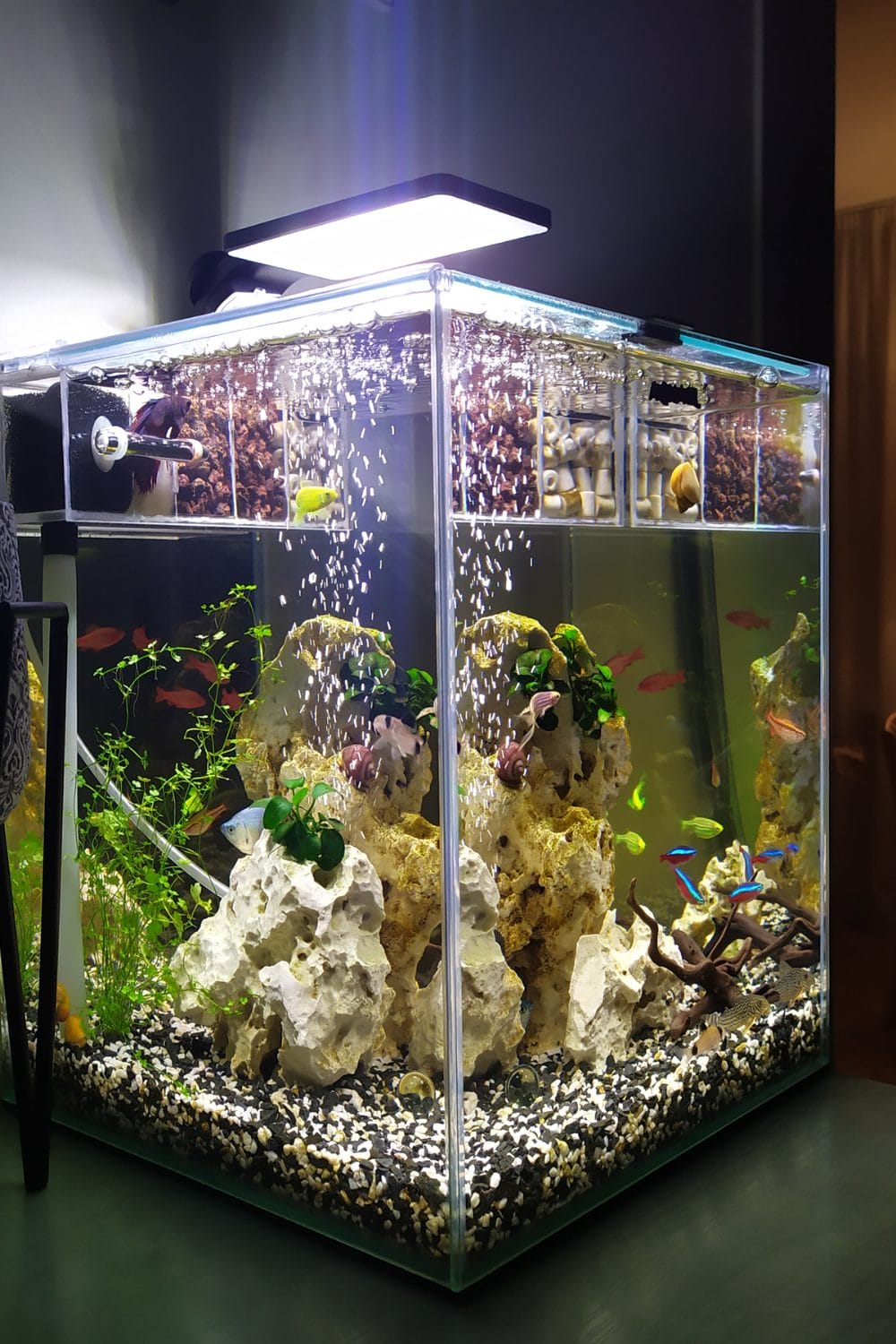
Stress in fish manifests in various ways—behavioral, physical, and environmental. If you notice any of the following, your fish may be under stress:
Loss of Appetite
A sudden or gradual decline in eating habits is a clear sign. Healthy aquarium fish should be eager during feeding times. If they ignore food or spit it out, something may be wrong.
Erratic Swimming Patterns
Are your fish darting around, swimming in circles, or floating near the surface or bottom for extended periods? Erratic movement is often a reaction to stress or poor water conditions.
Gasping at the Surface
Fish gasping for air at the water’s surface may indicate low oxygen levels, ammonia spikes, or poor water circulation. This is a major stressor and should be addressed immediately.
Clamped Fins
Fins that are consistently held close to the body (instead of fanned out) often signify that a fish is under duress. It’s one of the earliest physical indicators of stress.
Color Fading
Bright, vivid colors usually indicate a healthy aquarium fish. If your fish appear dull or washed out, stress could be the culprit, possibly due to poor water quality or bullying by other fish.
Hiding Frequently
Fish will hide occasionally, especially shy species, but excessive hiding or retreating from normal activity is a red flag.
White Spots or Fin Rot
These could be signs of ich or bacterial infections—conditions that often arise when fish are under prolonged stress and have weakened immune systems.
Aggressive or Lethargic Behavior
Stress can trigger both hyperactivity and lethargy. If a previously peaceful fish becomes aggressive or an active fish becomes sluggish, monitor closely.
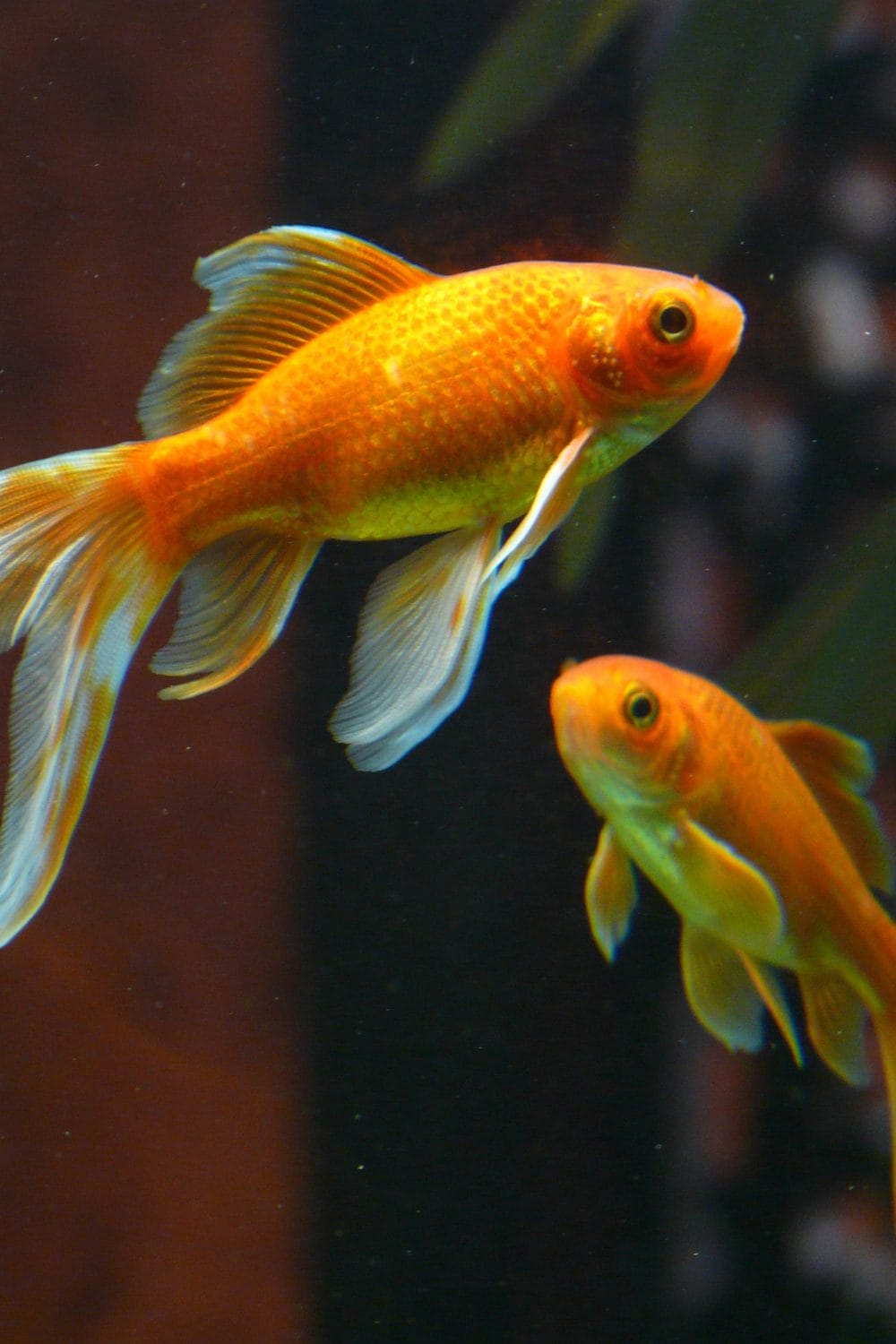
Steps to Eliminate Stress from Your Fish
Now that you know the signs, the next step is stress management. Here’s how to reduce fish stress in aquariums and create a thriving aquatic environment.
Maintain Water Quality
- Perform regular water tests for ammonia, nitrites, nitrates, and pH.
- Use a high-quality aquarium water conditioner.
- Do partial water changes (20–30%) weekly.
Poor water quality is the #1 cause of stress in fish. Keep water parameters stable and within safe ranges for your specific species.
Ensure Proper Filtration and Aeration
A good aquarium filter not only removes debris but also provides oxygenation and water flow. Make sure your system is adequate for the tank size and stocked fish.
Avoid Overcrowding
Too many fish in a small space can increase aggression, reduce oxygen levels, and raise toxin concentrations. Follow the one-inch-per-gallon rule for small fish, but research your specific species for better accuracy.
Provide Hiding Spaces
Adding plants, caves, driftwood, and decorations gives fish a sense of security and can reduce aquarium fish stress.
Keep a Consistent Lighting Schedule
Inconsistent lighting can disturb fish circadian rhythms. Use a timer to ensure 8–12 hours of light daily, depending on the species.
Feed the Right Way
Feed your fish nutritious fish food and avoid overfeeding. Uneaten food can decay and spike ammonia levels. Feed small amounts 1–2 times per day.
Quarantine New Fish
New arrivals can bring diseases or disrupt the social balance. Quarantine them for at least 2 weeks before adding them to the main tank.
Avoid Sudden Temperature Changes
Fish are sensitive to temperature fluctuations. Use a reliable aquarium heater and monitor the temperature daily.
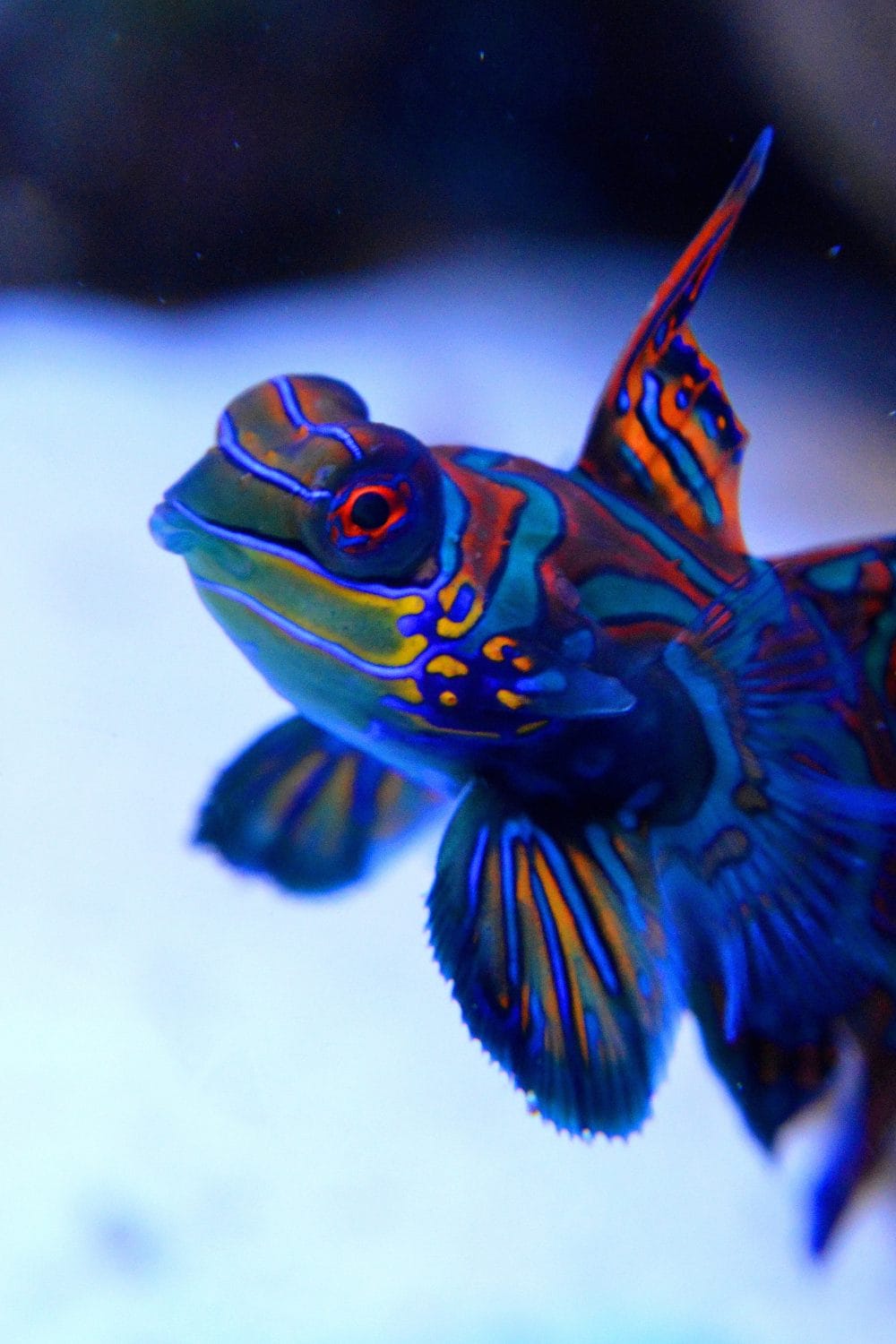
Common Mistakes That Cause Fish Stress
Many stressors are the result of unintentional errors. Here are the key mistakes to avoid:
Skipping Water Changes
Neglecting water changes leads to a buildup of toxins that can poison your fish over time.
Adding Fish Too Quickly
Introducing too many fish too fast overwhelms the biological filter, causing ammonia spikes in aquariums.
Mixing Incompatible Species
Some species are naturally aggressive or require different water parameters. Always research compatibility before purchasing new fish.
No Acclimation Process
Dumping new fish straight from the bag into your tank can shock them due to differences in temperature and pH. Always acclimate gradually over 30–60 minutes.
Overhandling or Tapping the Glass
Fish are easily startled. Refrain from excessive tapping, loud noises, or moving decorations often.
Conclusion
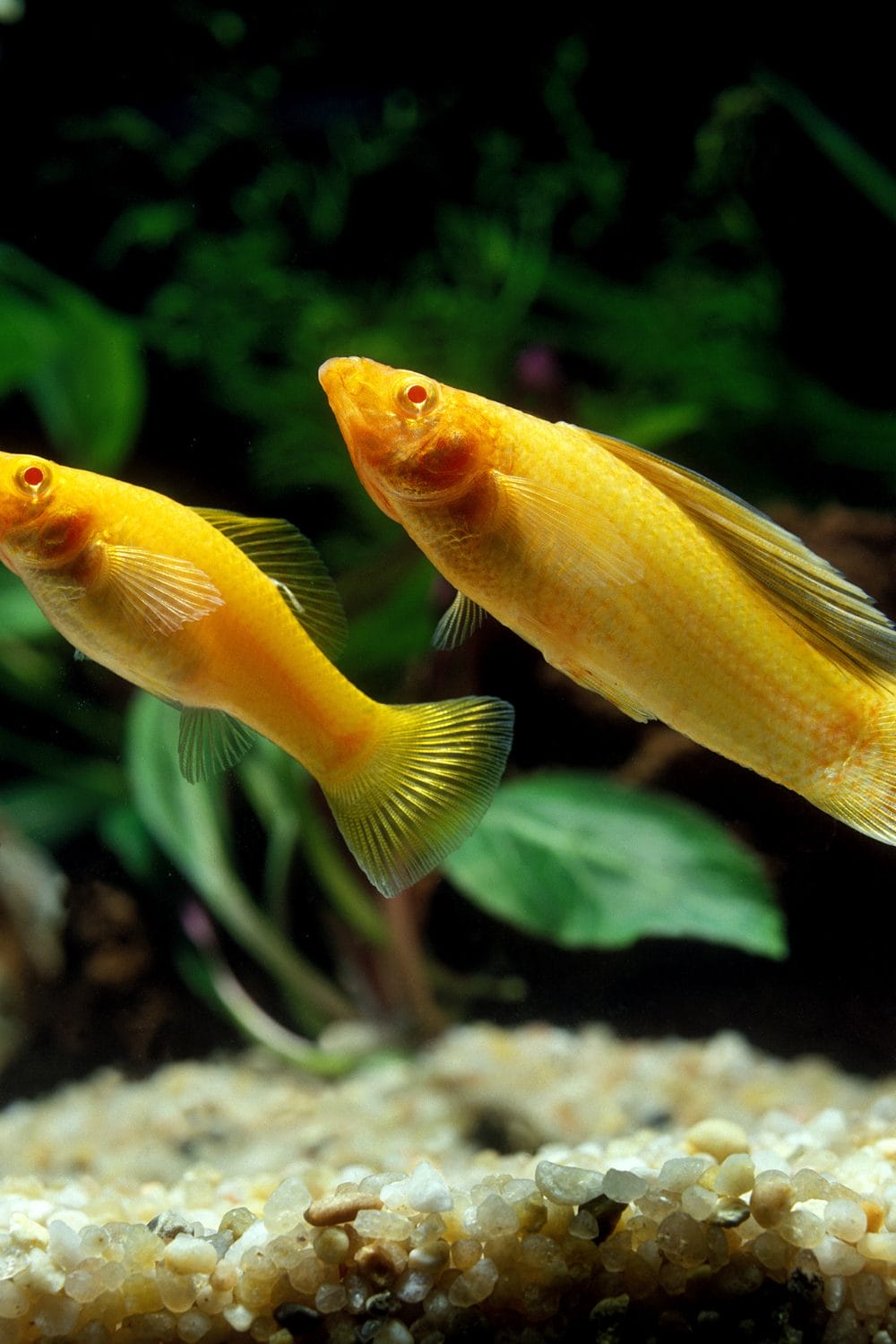
Understanding the signs your aquarium fish are stressed is essential for anyone serious about aquatic pet care.
Stress in fish isn’t just uncomfortable—it can lead to infections, aggressive behavior, and even death if not addressed.
By maintaining water quality, avoiding common mistakes, and providing a calm, enriching environment, you can ensure your finned friends live long, happy lives.
A healthy fish is an active, colorful, and social fish.
When your tank environment is right, you’ll see it reflected in the behavior and vitality of your aquatic pets.
Stay observant, be proactive, and always keep learning—your fish depend on you.
Frequently Asked Questions
Stress often leads to sickness, but the signs can overlap. If your fish displays multiple symptoms—like clamped fins, color fading, and lack of appetite—it’s best to test the water and isolate the fish for observation. Use a fish disease diagnosis chart or consult an aquatic vet if symptoms worsen.
The most effective way is to maintain stable water conditions, avoid overcrowding, and provide proper food and shelter. A clean, well-oxygenated tank with consistent temperature and compatible tank mates significantly lowers stress.
Yes. Chronic stress weakens the immune system, making fish susceptible to disease. Stress in aquarium fish is a leading cause of premature death, especially in poorly maintained tanks.
It depends on the severity and the cause. Minor stress may take a day or two to subside, while recovery from environmental trauma or disease can take weeks. Providing optimal conditions speeds up recovery.
Absolutely. Delicate or exotic species like Discus, Neon Tetras, or certain saltwater fish are more sensitive to environmental changes. Research your species’ care requirements to avoid stress triggers.
- How to Celebrate a Dog’s First Birthday on a Budget: 2026 Guide - February 18, 2026
- Best Shampoo for Sensitive Skin Dog Grooming: 2026 Guide - February 12, 2026
- 40+ Aesthetic Names for White Dogs (2026 Unique & Rare List) - February 6, 2026


GIPHY App Key not set. Please check settings